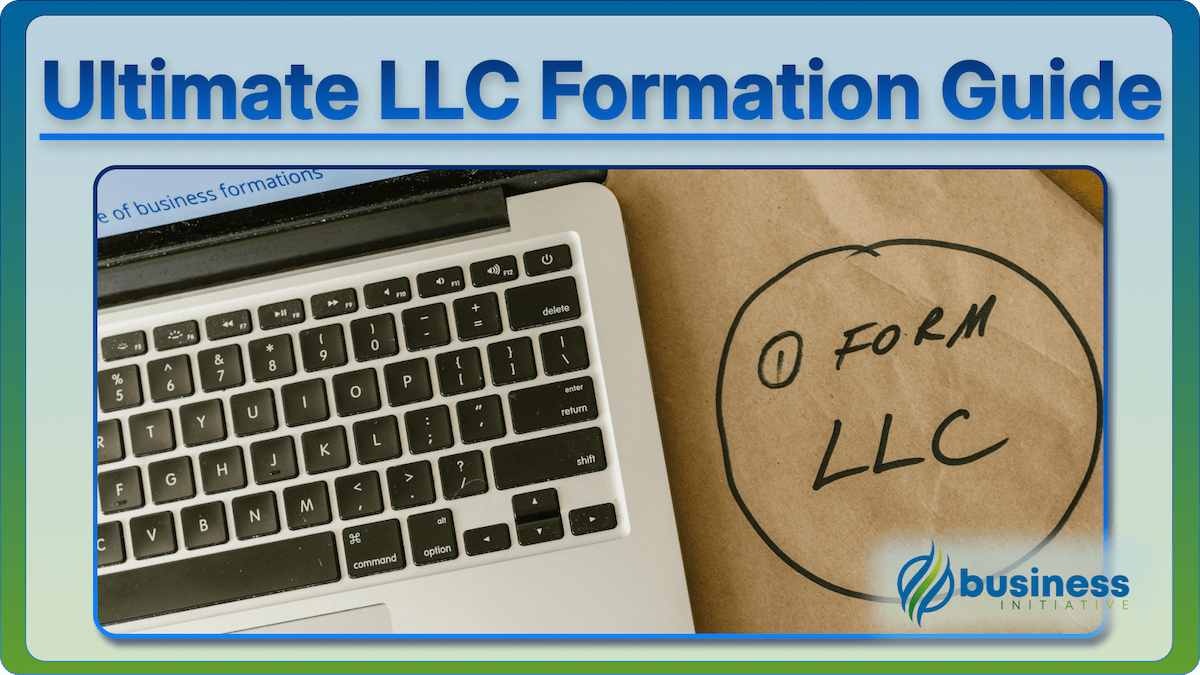You want investment.
But investors don’t take you seriously. They see red flags. They pass. You can’t get meetings.
You need investor-ready credibility.
But you don’t know what investors look for. You don’t know what’s missing. You don’t know how to fix it.
This guide shows you exactly what investors need.
Legal foundations. Financial foundations. Operational foundations. What investors check. How to pass.
Read this. Build your foundations. Get funded.
 Key Takeaways
Key Takeaways
- Form a Corporation (not LLC) for investor readiness—investors require corporations for equity investment, stock options, and professional structure
- Get proper legal documentation—operating agreements, bylaws, cap table, stock option plans—investors will review all of this
- Maintain clean financial records—separate business accounts, professional bookkeeping, clear financial statements—investors need to see organized finances
- Build professional operations—written contracts, clear processes, professional team—investors want to see serious business operations
- Create investor materials—pitch deck, financial projections, business plan—investors need to see you're prepared and professional
 Table of Contents
Table of Contents

Why Investors Matter
Investors fund growth.
What happens if you’re not investor-ready:
- Investors pass immediately
- Can’t get meetings
- Deals fall through
- Growth limited
What happens if you’re investor-ready:
- Investors take you seriously
- Meetings become possible
- Deals close faster
- Growth accelerates
The reality: Investor readiness is the difference between funded and unfunded.
Legal Foundations
Investors check your legal structure first.
Must-Have 1: Corporation Structure
What Investors Need:
- Corporation (C-Corp or S-Corp)
- Not LLC
- Proper entity structure
Why It Matters:
- Investors require corporations
- LLCs can’t issue stock
- Corporations enable equity investment
How to Fix:
- Form Corporation
- Or convert LLC to Corporation
- Set up proper structure
Pro tip: Corporations are required for most investment. LLCs won’t work for equity investment. See our structure comparison guide for details.

Must-Have 2: Proper Legal Documentation
What Investors Need:
- Operating agreement or bylaws
- Cap table
- Stock option plan
- Board resolutions
Why It Matters:
- Investors review all legal docs
- Red flags kill deals
- Proper docs show professionalism
How to Fix:
- Create proper legal documentation
- Maintain corporate records
- Keep everything organized
Pro tip: Investors will review all legal documentation. Make sure it’s professional and complete.
Must-Have 3: Clean Cap Table
What Investors Need:
- Clear ownership structure
- No messy equity splits
- Professional cap table
Why It Matters:
- Investors need clear ownership
- Messy cap tables kill deals
- Professional structure required
How to Fix:
- Create clean cap table
- Document all equity
- Keep it organized
Pro tip: Clean cap tables are essential. Investors won’t invest in messy ownership structures.
Financial Foundations
Investors check your finances second.
Must-Have 4: Separate Business Accounts
What Investors Need:
- Separate business bank account
- No mixing personal and business
- Professional financial management
Why It Matters:
- Shows you’re organized
- Signals professionalism
- Required for due diligence
How to Fix:
- Open business bank account
- Keep personal and business separate
- Use only for business
Pro tip: Separate accounts are non-negotiable. Investors will check this. See our EIN guide for getting set up.
Must-Have 5: Professional Bookkeeping
What Investors Need:
- Professional bookkeeping
- Clear financial records
- Organized financial statements
Why It Matters:
- Investors need to see finances
- Unorganized records kill deals
- Professional bookkeeping required
How to Fix:
- Set up professional bookkeeping
- Keep clear records
- Organize financial statements
Pro tip: Professional bookkeeping is essential. Investors need to see organized finances.

Must-Have 6: Financial Projections
What Investors Need:
- Financial projections
- Revenue forecasts
- Growth assumptions
Why It Matters:
- Investors need to see potential
- Projections show planning
- Required for investment decisions
How to Fix:
- Create financial projections
- Revenue forecasts
- Growth assumptions
Pro tip: Financial projections show investors you’re thinking ahead. Make them realistic and well-documented.
Operational Foundations
Investors check your operations third.
Must-Have 7: Professional Team
What Investors Need:
- Professional team structure
- Clear roles and responsibilities
- Professional operations
Why It Matters:
- Investors invest in teams
- Unprofessional teams kill deals
- Professional structure required
How to Fix:
- Build professional team
- Define clear roles
- Create professional structure
Pro tip: Investors invest in teams, not just ideas. Build a professional team structure.
Must-Have 8: Written Contracts
What Investors Need:
- Written contracts for all work
- Professional contract language
- Clear terms and conditions
Why It Matters:
- Shows you’re serious
- Signals professionalism
- Required for due diligence
How to Fix:
- Use written contracts
- Professional language
- Clear terms
Pro tip: Written contracts signal professionalism. Investors will check this.

Must-Have 9: Clear Processes
What Investors Need:
- Clear business processes
- Professional operations
- Organized systems
Why It Matters:
- Shows you’re organized
- Signals professionalism
- Required for scaling
How to Fix:
- Create clear processes
- Professional operations
- Organized systems
Pro tip: Clear processes show investors you can scale. This is essential for growth.
Investor Materials
Investors need professional materials.
Must-Have 10: Pitch Deck
What Investors Need:
- Professional pitch deck
- Clear value proposition
- Compelling story
Why It Matters:
- First impression matters
- Unprofessional decks kill deals
- Professional deck required
How to Fix:
- Create professional pitch deck
- Clear value proposition
- Compelling story
Pro tip: Pitch decks are your first impression. Make them professional and compelling.
Must-Have 11: Business Plan
What Investors Need:
- Professional business plan
- Clear strategy
- Detailed execution plan
Why It Matters:
- Shows you’re serious
- Signals professionalism
- Required for investment
How to Fix:
- Create professional business plan
- Clear strategy
- Detailed execution plan
Pro tip: Business plans show investors you’ve thought through your business. Make them detailed and professional.

Must-Have 12: Financial Statements
What Investors Need:
- Professional financial statements
- Clear financial position
- Organized records
Why It Matters:
- Investors need to see finances
- Unorganized statements kill deals
- Professional statements required
How to Fix:
- Create professional financial statements
- Clear financial position
- Organized records
Pro tip: Financial statements are essential for due diligence. Make them professional and organized.
Due Diligence Checklist
Use this checklist to prepare for investor due diligence:
Legal Due Diligence
- Corporation structure (not LLC)
- Operating agreement or bylaws
- Cap table clean and organized
- Stock option plan
- Board resolutions
- Corporate records maintained
- No legal issues or disputes
Financial Due Diligence
- Separate business bank account
- Professional bookkeeping
- Clear financial records
- Financial statements organized
- Financial projections prepared
- Tax returns filed
- No financial red flags
Operational Due Diligence
- Professional team structure
- Written contracts for all work
- Clear business processes
- Professional operations
- Organized systems
- Clear value proposition
- Professional materials
Investor Materials
- Professional pitch deck
- Business plan prepared
- Financial statements ready
- Financial projections prepared
- Team bios prepared
- Market analysis prepared
- Competitive analysis prepared
Pro tip: Complete this checklist before seeking investment. Investors will check all of this. See our credibility guide for more signals.
Your Next Steps
Build your foundations. Get investor-ready. Get funded.
This Week:
- Review this guide
- Assess your current readiness
- Identify gaps
- Start building foundations
This Month:
- Complete legal foundations
- Set up financial foundations
- Build operational foundations
- Create investor materials
Going Forward:
- Maintain all foundations
- Continue building credibility
- Prepare for due diligence
- Seek investment
Need help? Check out our structure comparison guide for entity choice, our credibility guide for more signals, and our credibility audit for assessing your readiness.
Stay informed about business strategies and tools by following us on X (Twitter) and signing up for The Initiative Newsletter.
FAQs - Frequently Asked Questions About Building Investor-Ready Credibility: Legal, Financial, and Operational Must-Have

What legal foundations do investors expect before they'll consider funding your business?
Investors expect a proper entity structure (typically LLC or corporation), ongoing legal compliance with all filings current, and established corporate governance with documented processes.
Learn More...
The legal foundation has three pillars: entity structure (a properly formed LLC or corporation that matches your funding strategy—VCs often prefer C-Corps), legal compliance (all filings current, registered agent in place, BOI compliance, no outstanding penalties), and corporate governance (board structure, documented decision-making processes, meeting minutes). Missing any of these signals to investors that the business isn't ready for professional capital. Investors will walk away from a great business idea if the legal house isn't in order.
What financial records and documents must be investor-ready?
Investors require accurate bookkeeping, professional financial statements (income statement, balance sheet, cash flow), realistic financial projections, and clear documentation of your financial position.
Learn More...
Financial credibility requires: accurate day-to-day bookkeeping using professional accounting software (not spreadsheets), formal financial statements prepared by a CPA or reliable accounting system, transparent documentation of revenue, expenses, margins, and cash position. You also need realistic financial projections with clearly stated assumptions—investors will scrutinize projections and reject anything that looks inflated. Your financial records should tell a coherent story about where the business has been and where it's headed.
How do operational systems and team capabilities signal investor readiness?
Professional operations, established business systems, and a capable management team demonstrate you can actually execute on the business plan—not just pitch it.
Learn More...
Investors fund execution capability, not just ideas. They evaluate whether you have established business processes that can scale, professional systems for managing operations (CRM, project management, reporting), and a management team with the skills and experience to grow the business. A qualified team with clear roles signals that the business isn't dependent on a single founder doing everything. Professional systems show the business can handle growth without breaking. These operational signals often matter as much as the product itself.
What documentation should founders prepare before approaching angel investors or VCs?
Prepare a comprehensive business plan, detailed financial projections with clear assumptions, all corporate legal documents, and a compelling pitch deck that ties everything together.
Learn More...
Your documentation package should include: a business plan with clear market analysis, competitive positioning, and growth strategy; financial projections showing realistic revenue growth, expense management, and path to profitability with documented assumptions; all legal documents (articles of organization/incorporation, operating agreements, compliance records, cap table); and a pitch deck that synthesizes everything into a compelling narrative. Completeness matters—missing any standard document raises red flags because it suggests the founder either isn't thorough or is hiding something.
How does missing investor-ready credibility put you at a competitive disadvantage for funding?
Investors compare you to other businesses seeking the same capital—if competitors have complete legal, financial, and operational foundations and you don't, they'll get funded instead.
Learn More...
Angel investors and VCs evaluate dozens or hundreds of opportunities and invest in very few. When your legal structure is incomplete, financial records are messy, or operations look unprofessional, you give investors easy reasons to pass—even if your product or market opportunity is strong. Meanwhile, competitors with polished foundations get the meetings, the second looks, and ultimately the funding. Every credibility gap compounds: missing legal compliance makes investors question your financial discipline, which makes them question your operational capability.
What is the recommended step-by-step order for building investor-ready credibility?
Start by assessing gaps, then build legal foundations (entity, compliance, governance), establish financial foundations (records, statements, transparency), develop operational foundations (systems, team), and finally prepare complete documentation.
Learn More...
The five-step framework is: (1) Assess current state—evaluate your legal structure, financial records, and operational capability to identify gaps. (2) Build legal foundation—form the proper entity type, establish ongoing compliance, and create governance structures. (3) Establish financial foundation—implement professional bookkeeping, prepare financial statements, and maintain transparent records. (4) Develop operational foundation—build scalable systems, organize your team, and establish professional processes. (5) Prepare documentation—create your business plan, financial projections, and compile all supporting documents. This sequence matters because each step builds on the previous one.
Sources & Additional Information
This guide provides general information about investor readiness. Your specific situation may require different foundations.
For structure comparisons, see our Structure Comparison Guide.
For more credibility signals, see our Credibility Guide.
For assessing readiness, see our Credibility Audit.
Consult with legal and financial professionals for advice specific to your situation.


